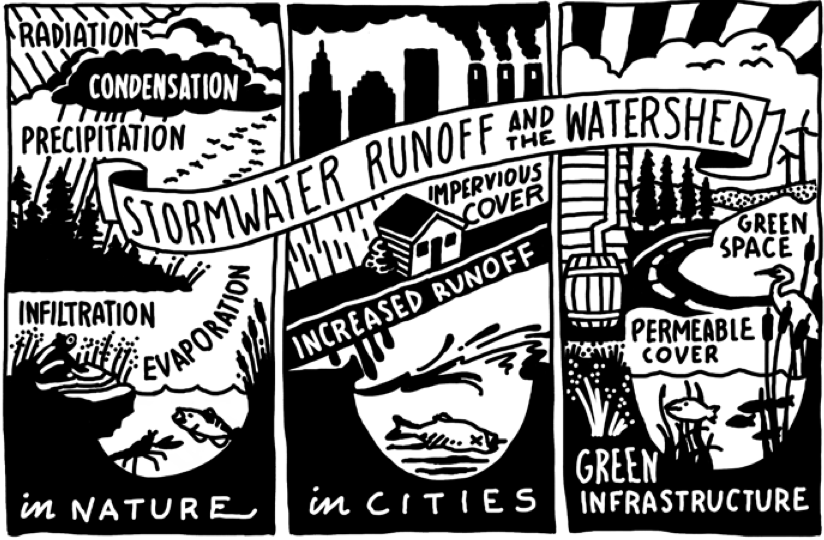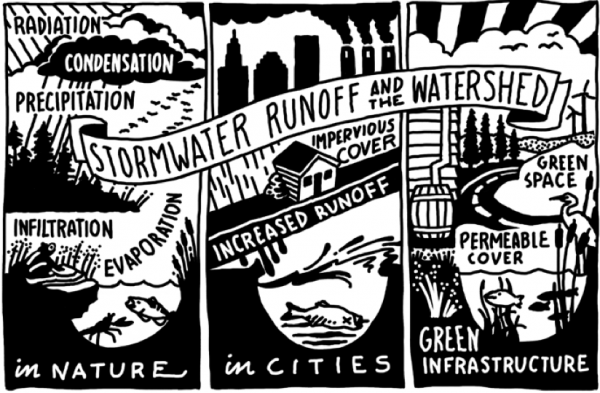
It was Governor’s Bay Day this past weekend, where the bonus was free parking and free transportation to the state beaches in Narragansett Bay and along the Atlantic coast, widely acclaimed as some of the most beautiful shoreline in the world. Beaches are not normally free as user fees help maintain and protect these valuable natural assets.
Over the last several years, many towns like Bristol and Newport have invested millions in infrastructure to protect Bristol Town Beach, Easton’s (First) Beach in Newport, and other local beaches. These improvements come at a cost, but they are critical long-term investments to help keep beaches open and avoid costly beach closures. When beaches are open, local economies that rely upon beachgoers and tourists reap measurable returns. Visitors that enjoy these clean beaches also return to enjoy future beach seasons. A new report by Watershed Counts was issued this week that celebrates these investments to protect water quality at our beaches, and gives the public a full assessment of their current health.
The 2014 Watershed Counts Report [RI Future story here] details how the summer of 2013 saw impressive rain totals. Normally, a pattern of excessive rain translates into a large number of beaches closures. This is because rain washes pollution and bacteria into our coastal waters and beaches must be closed by the health departments to protect people from disease. But 2013 was different for those towns that had the foresight and financial backbone to tackle these issues. Newport invested over $6 million to build an ultraviolet plant to disinfect water before it affects beachgoers; and the Town of Bristol transformed Bristol Town Beach by installing numerous green infrastructure safeguards to protect beach water quality. Neither of these beaches was closed last year.
In fact, the report shows that there were fewer beach closures in 2013 compared to past rainy years, which means that investments are paying off through reduced water pollution. All along the shores of Narragansett Bay and the coast, similar plans are emerging. Many local leaders understand that clean and open beaches are important to residents and are a catalyst to a healthy economy. Clean and healthy waters create jobs in the marine trades, fishing, shellfishing, and the tourism and hospitality industries. Property values also benefit from clean waterways.
However, the 2014 Watershed Counts Report also provides a note of caution that the increased challenges of climate change may bring additional threats to our beaches, such as sea level rise, rising temperatures, and more intense and frequent storms. All of these impacts have the potential to close beaches more often due to water quality concerns caused by stormwater and wastewater pollution. Increased temperatures enhance the breeding ground for harmful bacteria, and more frequent and intense storms mean more pollutants are deposited at local beaches. In addition, many of our beaches are bordered by buildings and other hardened surface structures, such as parking lots, that prevent beaches from naturally migrating inland in response to rising sea levels.
Yet another issue raised in the 2014 Watershed Counts Report is a lack of dedicated state funding to allow Rhode Island and Massachusetts health agencies to monitor how clean our beaches really are. We close beaches to protect public health, but we only know when to close them when we test beach water quality. Presently, the vast majority of funding for marine beach monitoring comes from federal support from the U.S. Environmental Protection Agency. While the states appreciate these federal funds to monitor water quality, this federal program has recently been at issue for possible elimination in federal budget talks. In addition, there is no state or federal funding to test water quality at our freshwater beaches, which are central to summer recreation in many Rhode Island and Massachusetts communities.
Watershed Counts, co-led by the University of Rhode Island’s Coastal Institute and the Narragansett Bay Estuary Program, is a partnership of 60 state and federal agencies, non-governmental organizations, municipalities and watershed groups that annually assesses the environmental quality of the Narragansett Bay watershed, 60% of which is in Massachusetts. Watershed Counts constantly stresses the fact that Narragansett Bay and our coastline are not only our leading environmental resource, but its most vital economic asset as well. See the 2014 Watershed Counts Report at www.watershedcounts.org.
Beaches are deeply embedded in the culture of Rhode Island and Massachusetts. Ask any resident why they live here, or ask any visitor why they return year after year, and they will likely say it’s because they enjoy the beautiful waters of the Atlantic Ocean or Narragansett Bay. It is time for other municipalities to follow the examples set by Bristol and Newport and invest in our beaches. It is also time for Rhode Island and Massachusetts to identify a funding source to monitor beach water quality as federal funding will likely wash away with the tide.
By Judith Swift, Nicole Rohr, and Tom Borden. Swift is the Director and Rohr the Assistant Director at the University of Rhode Island’s Coastal Institute. Tom Borden is the Program Director at the Narragansett Bay Estuary Program.



